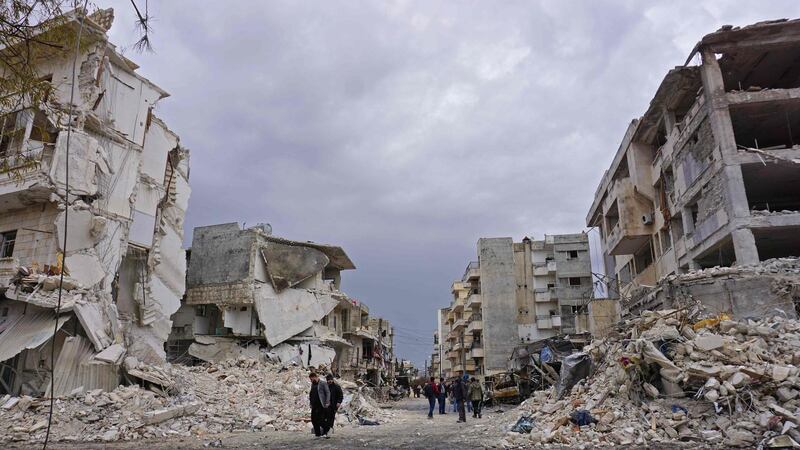In global discussion of the complex Syrian war, there is a tendency for people to focus on either its most momentous events or those closest to home.
For instance, the British public has seized upon the fate of the 19-year-old ISIS wife Shamima Begum, who left London while still a schoolgirl to join the group and whose British citizenship now hangs in the balance. US citizens have debated the merits of President Donald Trump’s mooted troop withdrawal. Meanwhile, the whole world has been engrossed in the stream of families fleeing Baghouz, the last redoubt of ISIS.
In the process, less obvious stories are overlooked. Eight years into a conflict that has killed more than 500,000 people and displaced 7.6 million, the north-western province of Idlib is the last bastion of opposition to Bashar Al Assad's regime. And with global attention diverted elsewhere, the enclave is at risk of becoming a bloodbath.
Today, some three million people live in Idlib. While most are civilians, it is policed by the Free Syrian Army and dominated in parts by powerful hardline groups, chiefly the Al Qaeda affiliate Hayat Tahrir Al Sham. A deal struck between Russia and Turkey in Sochi last September has averted a regime onslaught – but now cracks appear to be forming.
Last Wednesday, airstrikes by the regime and its Russian backers hit towns in the province, marking the gravest violation to date. Facing the twin threat of regular shelling and clashes between extremist groups, Idlib's civilian population is losing hope. Meanwhile, humanitarian aid convoys have been attacked, schools are closed and hospitals have been reduced to rubble.
This year, the United Nations is requesting nearly $9 billion in aid for Syria. The human suffering is immense, and dispersed across the war-torn nation, but the world should not take its eyes off Idlib. Because an all-out attack on the province could see displacement and bloodshed on a scale thus far unseen.





